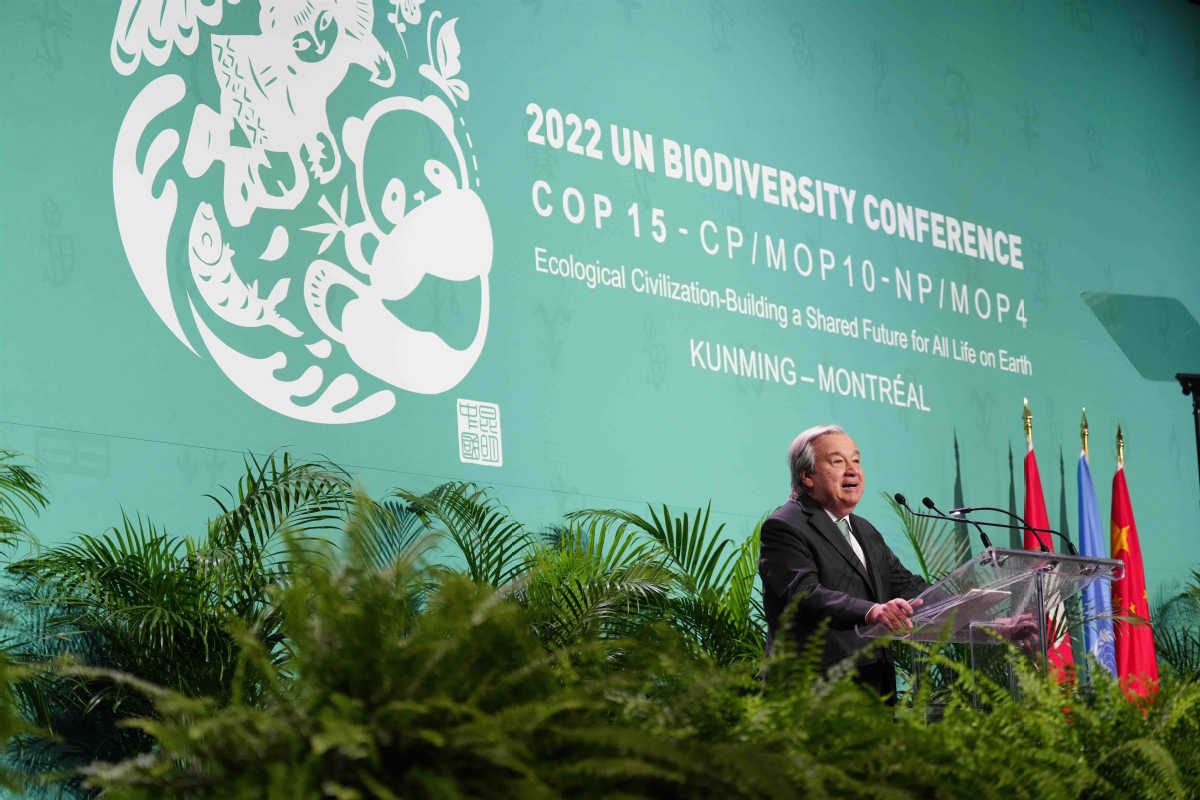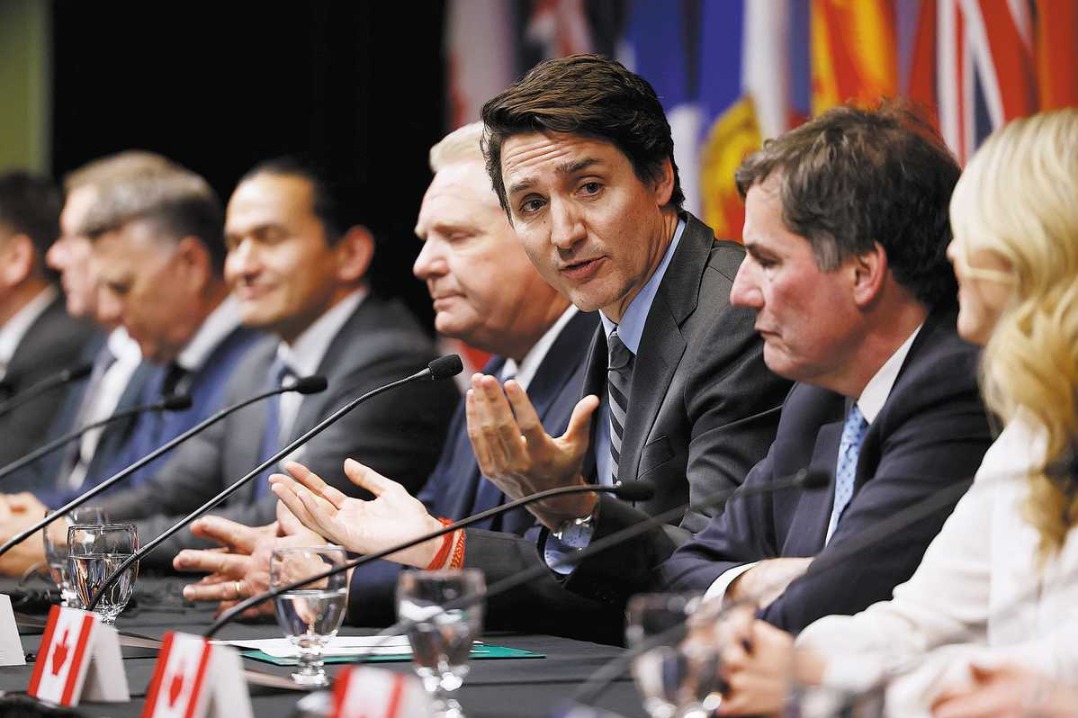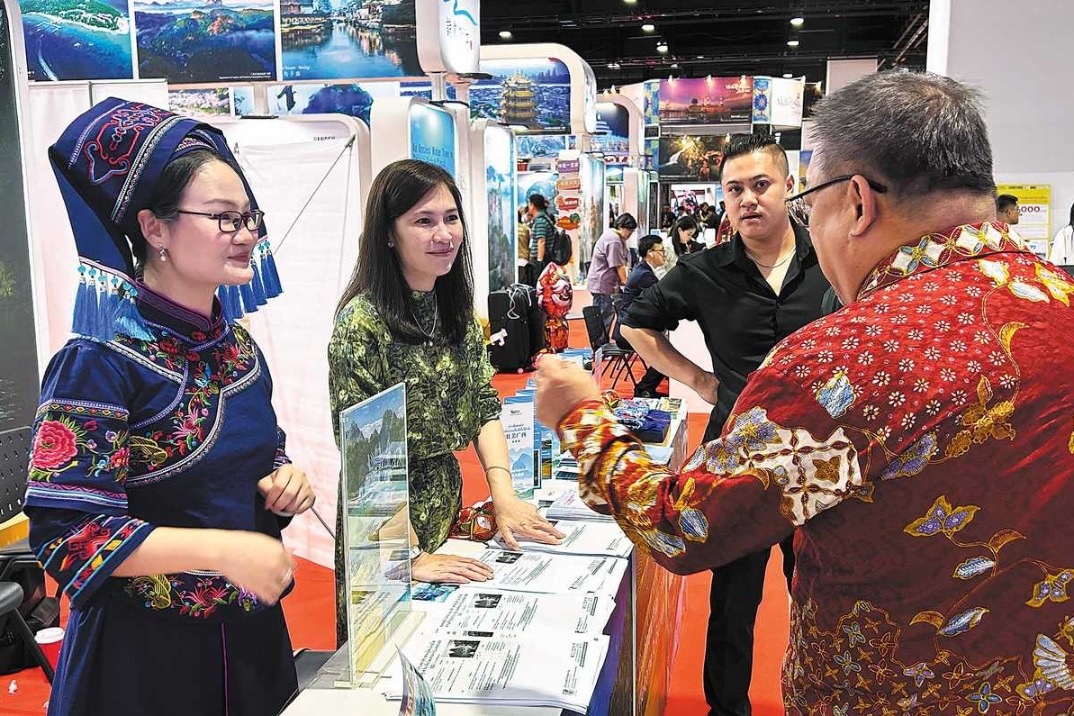Global biodiversity set to get boost from gathering


Seen as the key drivers of global biodiversity, ministers from around the world arrived for a three-day, high-level meeting at the 15th Conference of the Parties to the UN Convention on Biological Diversity in Montreal, setting out to adopt the ambitious Post-2020 Global Biodiversity Framework.
The meeting, which began on Thursday, assembled ministers from 140 contracting parties and 60 international organizations, including nearly 200 ministerial-level representatives.
"This is the largest number of high-level representatives in the history of COP," Huang Runqiu, president of COP15 and China's minister of ecology and environment, said in his opening remarks."We fully feel the strong political will of all countries to protect biodiversity and reverse the loss of global biodiversity."
Csaba Korosi, president of the 77th session of the UN General Assembly, told the ministers that the global biodiversity framework must be implemented to deliver more for nature at the end of this decade.
"I call all scientists, negotiators, and decision-makers to maintain your ambition for harmony. We are part of nature. It should be harmony in nature to where we belong," Korosi said. "I encourage you to tackle the root causes of biodiversity loss by transforming the ways we produce, consume, trade, and transport."
Korosi urged governments to end harmful subsidies, especially for fossil fuels, non-sustainable agriculture, forestry, and fisheries. Instead, governments should guide businesses to invest in transformation toward the circular economy.
United Nations Deputy Secretary-General Amina J. Mohammed indicated that developed countries must support developing nations with financial resources and technical expertise to ensure that the framework is implemented fairly and equitably across all countries.
"This is especially important for developing countries which are home to a great majority of the world's biodiversity," she told the ministers.
Elizebeth Maruma Mrema, executive secretary of the UN Convention on Biological Diversity, said: "The conference here in Montreal must be a turning point."
"There is no question that there are innumerable differences in this room, as we have different cultures, different interests, and different levels," Mrema said. "Still, I urge you (ministers) to work with all levels of government to ensure a holistic national approach."
Zhang Yan, a girl from Xishuangbanna Dai autonomous prefecture of Yunnan province, drew applause at the event when she shared her story about being a neighbor with Asian elephants.
"I live in a traditional multiethnic village with mountains and rivers nearby. Many years ago, Asian elephants started walking into my village and they became good friends with us," Zhang said. "Villagers were very excited and treated the elephants as the most honored guests, letting them enjoy the food in the field."
To further protect Asian elephants while ensuring the safety of villagers, the government relocated her village to a place with convenient transportation and improved living conditions in 2015.
In 2017, with the help of the government and experts, an "elephant fence" was set up around Zhang's new village, providing more space for the elephants.
"My village has become a pilot for China's first Asian elephant fence project and is well-known for showcasing harmony between people and elephants," she said.
Zhang's story has since been lauded as an example of community participation in the protection of Asian elephants in South China, with many communities actively engaging in protecting the elephants and different ethnic groups living with the animals peacefully.
































